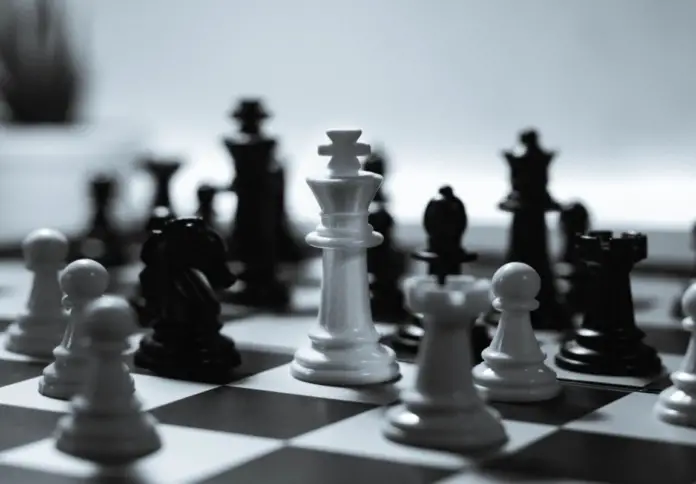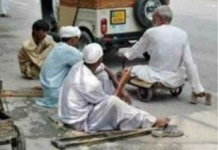Historically the ruling elite, be it the democrats or the despots, have used all means at their hands to get into the power corridors including the most violent methods such as physically eliminating potential rivals, blood relatives with claim to the throne, incarcerations, and disappearances. Politics is and has been all about seeking absolute power to govern; either with the support of masses or using the might. Enforcement of policies and decisions, which at times can be unpopular and cause hardship to the people makes it at times difficult to keep the hold on power. Kingdoms survived on the might of armies that were loyal to the throne and kept the subjects weak and divided to be easily ruled.
It became politically scientific and strategic when democracy and democratic values were introduced. Ruling the countries required the majority support to remain in power. Citizens were not willing to be treated as subjects anymore but equals; having rights and responsibilities. Politics took a turn for the better as popular leadership evolved to lead their nations to progress and prosperity.
In the underdeveloped world, the medieval feudal and oligarchical systems helped a small group of people in having control of a country. Backwardness and poverty suited the feudal lords to control their fiefdoms. Brute ruthless force was used to silence any dissenting voice demanding people’s rights. In regions where the civil political leadership was weaker, the military leadership and the institutions took control playing the role of minders and masters. Therefore, in such a scenario, any popular leadership, specially arising from the middle and working class, almost never had a chance to succeed.
Fearing the rivals and opponents to be stronger having better ideology and vision, the popular leadership having mass support, has been many a times subjected to the policy of “Divide and Rule”.
A political strategy to gain or retain power by cultivating disunity among potential opponents, often by co-opting some individuals and groups while excluding others.
“Divide and Rule”, The Oxford Reference
You use divide and rule to refer to a policy which is intended to keep someone in a position of power by causing disagreements between people who might otherwise unite against them.
“Divide and Rule”, The Collins Dictionary
We see the policy of divide and rule with its classic application in the making and breaking of the opposition grand alliance, i.e., Pakistan Democratic Movement (PDM). The joint rallies in all major cities, protest demos, etc, an apparent optics of massive build-up for the ultimate long march and resignations from the parliament. However, the seed of division and mistrust was sowed among them, which resulted in the collapse of the opposition alliance.
Not to forget the stupendous scenes in the Senate of Pakistan, where despite having a clear majority, the opposition miserably failed to first win the no-confidence against the sitting Chairman, and then failed to win the Senate chairman election. It also failed to show a united stand to elect the leader of the opposition in Senate. It gets clumsier when you recall the election of two Senate members from the National Assembly of Pakistan. The ruling party having a clear majority failed to get one of their candidates elected for Senate – amazing; but more surprisingly, they got their woman candidate elected to Senate by the same members, on the very same day! Confused? Yes, a show of manipulative voting leading to the embarrassment of the ruling party. The “divide and rule” policy implemented and executed with perfection.
Politics of Karachi, the divide and rule policy, and the recent political events, movements, and demonstrations against the PPP Sindh Government over the Local Government Act 2013 and 2021. The Jamaat-e-Islami (JI), the Muttahida Quami Movement Pakistan (MQMP) and Pak Sarzameen Party (PSP) organised rallies, protest demos, sit-ins, etc. The JI took the lead with their 28-day sit-in at the Sindh Assembly Building, the MQM also somehow managed a rally to the CM House (initially it was meant to reach the Karachi Press Club) where the police resorted to baton charge and assault on ladies. The PSP too jumped in with a six-day sit-in.
Guess, who played smart? Yes, the PPP. They made sure that none of the stakeholders, having similar demands, protesting for the abolition of the ‘black law’ of local government, asking for devolution and implementation of Article 140A, etc; should ever join forces. The PPP’s provincial and local leadership engaged them separately, thus, effectively preventing them to plan a united struggle. It conducted a dialogue with JI and agreeing in principle with their demands and praising them publicly for their efforts. With the MQM, it was a surprise show but due to the mishandling by the provincial government, it turned nasty and so the credit and sympathy went to the MQM with maximum coverage to the issue of empowered local government. On February 1, 2022, to their support, the retiring chief justice decided to announce the reserved judgment on MQM’s petition interpreting Article 140A and directions to amend the law.
PPP successfully managed to create discord between the political stakeholders. They cultivated disunity and major disagreements between parties who might have otherwise stood united. They may have as well co-opted with one of the rivals by over-praising them to create doubt in other’s minds, thus successfully fostering feuds between local parties and averting mass scale protest.
The Roman and British Empire used the policy of divide and rule successfully playing one community or a group against the other just as when the British Empire took India.
It is ever so difficult to start a movement and sustain it because of the heavy logistics involved and funding. Blessing at the end came from the Supreme Court Judgment, which is not the by-product of any of the sit-ins or rallies. It is binding and must be enforced in letter and spirit. It is to be seen if the political entities of the city can at least unite their resources to build up pressure for its implementation. It would undoubtedly be good for basic democracy, where power is shared with people at the grass roots. The nursery of democracy will produce leaders with knowledge of municipal and civic services. Beware, it has been and will be seen as a threat by the familial and dynastic style politics of feudal lords -and they will resort to any means to fail such efforts.
Divide and Rule, the politician cries; unite and lead, is watchword of the wise.
Jonathan Wolfgang von Goethe
Local government elections is the next event as and when the law is amended. The city of Karachi will see alliances of likeminded parties. A huge political vacuum exists in the city as the PTI has not succeeded in becoming the political voice of Karachi because of their weak organisation and lack of understanding of “Karachi’s politics”, and the grievances faced by its residents. Ethnicity is and will play a major role, whether one likes it or not. There is a history of ethno-linguistic particularism. Karachiites still feel an emotional attachment to the ethnic card. An exciting and new brand of political sloganeering will be the key. All national parties – PTI, PPP and PMLN – see the vacuum and are ready to jump in. It is a known fact that Karachiites usually prefer to side with the party at the federal level forming government in Islamabad. Interesting times ahead for all to try and fill the political vacuum. Local and regional parties having pockets of mandate must look forward for alliances and post-election coalition governments. Seven districts and the city mayorship is at stake, and as we learn from the history, the party in power at the local government level stands a strong chance of winning the general elections of 2023.
In the end, all parties whether local, regional or at the national level must realize that without an empowered local government, the misery of the public and their issues cannot be resolved. After the 18th Amendment, provincial governments are not willing to further devolve powers to the districts as per Article 140A. Law making by the provincial assemblies for local government has been controversial. It is, therefore, need of the time that once and for all, this subject is taken up at the federal level by the parliament. The local governments as the third tier require constitutional status of protection. An amendment in the Constitution, by inserting Chapter 4 in Part IV, defining the role and domain of (1) Local Government and Local Councils, (2) Provincial Finance Commission (PFC) with similar formula as agreed for the National Finance Commission (NFC), (3) Election, its process and timings, (4) Powers of Mayors, composition of Metropolitan Governments, District Governments, Tehsil/Town Governments and Village/Union Councils etc, (5) Caretaker setup, (6) Schedule list of fully devolved departments and meaningful participation of Local Government elected representatives in other authorities and boards functioning within their domain, (7) Unity of Command for the metropolitan and district government as far as municipal and civic functions/departments under the Mayor/Chairman. The constitutional guarantees and protection should be like that of the president, prime ministers, chief ministers, federal government, and provincial governments etc. This will for sure bring an end to the debate of having an empowered local government. The enactment of laws will be smooth as they will have to be in line with the Constitution. It is strange that despite the enormous role of the local government functions in our daily life; we have to date resisted to have its role defined in the constitution.
We have repeatedly witnessed that the law enacted by the provincial assemblies for local government is heavily criticized because the ruling party ensures that its political agenda and motives are served so that it can continue to control the administrative and financial powers. We have also seen that strong protests and demos have made the provincial governments to change the laws as well. A simple notification can withdraw almost any clause of an Act. Similarly, a simple notification devolves a department and another one can cancel a previous notification, rescinding whatever had been introduced. Systems cannot develop and flourish in such uncertainty. We all must stand united with one voice for an empowered local government and not let the infamous “divide and rule policy” deter us. Agreeing on anything less is a disservice to democracy.







